第72章 XVIII THE HERITAGE OF THE DESERT(1)
Mescal's far out in front by this time. Depend on it, Hare," went on Naab. "That trick was the cunning Indian of her. She'll ride Silvermane into White Sage to-morrow night. Then she'll hide from Snap. The Bishop will take care of her. She'll be safe for the present in White Sage.
Now we must bury these men. To-morrow--my son. Then--""What then?" Hare straightened up.
Unutterable pain darkened the flame in the Mormon's gaze. For an instant his face worked spasmodically, only to stiffen into a stony mask. It was the old conflict once more, the never-ending war between flesh and spirit. And now the flesh had prevailed.
"The time has come!" said George Naab.
"Yes," replied his father, harshly.
A great calm settled over Hare; his blood ceased to race, his mind to riot; in August Naab's momentous word he knew the old man had found himself. At last he had learned the lesson of the desert--to strike first and hard.
"Zeke, hitch up a team," said August Naab. "No--wait a moment. Here comes Piute. Let's hear what he has to say."Piute appeared on the zigzag cliff-trail, driving a burro at dangerous speed.
"He's sighted Silvermane and the rustlers," suggested George, as the shepherd approached.
Naab translated the excited Indian's mingling of Navajo and Piute languages to mean just what George had said."Snap ahead of riders--Silvermane far, far ahead of Snap--running fast--damn!""Mescal's pushing him hard to make the sand-strip," said George.
"Piute--three fires to-night--Lookout Point!" This order meant the execution of August Naab's hurry-signal for the Navajos, and after he had given it, he waved the Indian toward the cliff, and lapsed into a silence which no one dared to break.
Naab consigned the bodies of the rustlers to the famous cemetery under the red wall. He laid Dene in grave thirty-one. It was the grave that the outlaw had promised as the last resting-place of Dene's spy. Chance and Culver he buried together. It was noteworthy that no Mormon rites were conferred on Culver, once a Mormon in good standing, nor were any prayers spoken over the open graves.
What did August Naab intend to do? That was the question in Hare's mind as he left the house. It was a silent day, warm as summer, though the sun was overcast with gray clouds; the birds were quiet in the trees;there was no bray of burro or clarion-call of peacock, even the hum of the river had fallen into silence. Hare wandered .over the farm and down the red lane, brooding over the issue. Naab's few words had been full of meaning; the cold gloom so foreign to his nature, had been even more impressive. His had been the revolt of the meek. The gentle, the loving, the administering, the spiritual uses of his life had failed.
Hare recalled what the desert had done to his own nature, how it had bred in him its impulse to fight, to resist, to survive. If he, a stranger of a few years, could be moulded in the flaming furnace of its fiery life, what then must be the cast of August Naab, born on the desert, and sleeping five nights out of seven on the sands for sixty years?
The desert! Hare trembled as he grasped all its meaning. Then he slowly resolved that meaning. There were the measureless distances to narrow the eye and teach restraint; the untrodden trails, the shifting sands, the thorny brakes, the broken lava to pierce the flesh; the heights and depths, unscalable and unplumbed. And over all the sun, red and burning.
The parched plants of the desert fought for life, growing far apart, sending enormous roots deep to pierce the sand and split the rock for moisture, arming every leaf with a barbed thorn or poisoned sap, never thriving and ever thirsting.
The creatures of the desert endured the sun and lived without water, and were at endless war. The hawk had a keener eye than his fellow of more fruitful lands, sharper beak, greater spread of wings, and claws of deeper curve. For him there was little to eat, a rabbit now, a rock-rat then; nature made his swoop like lightning and it never missed its aim.
The gaunt wolf never failed in his sure scent, in his silent hunt. The lizard flicked an invisible tongue into the heart of a flower; and the bee he caught stung with a poisoned sting. The battle of life went to the strong.
So the desert trained each of its wild things to survive. No eye of the desert but burned with the flame of the sun. To kill or to escape death--that was the dominant motive. To fight barrenness and heat--that was stern enough, but each creature must fight his fellow.
What then of the men who drifted into the desert and survived? They must of necessity endure the wind and heat, the drouth and famine; they must grow lean and hard, keen-eyed and silent. The weak, the humble, the sacrificing must be winnowed from among them. As each man developed he took on some aspect of the desert--Holderness had the amber clearness of its distances in his eyes, its deceit in his soul; August Naab, the magnificence of the desert-pine in his giant form, its strength in his heart; Snap Naab, the cast of the hawk-beak in his face, its cruelty in his nature. But all shared alike in the common element of survival--ferocity. August Naab had subdued his to the promptings of a Christ-like spirit; yet did not his very energy, his wonderful tirelessness, his will to achieve, his power to resist, partake of that fierceness? Moreover, after many struggles, he too had been overcome by the desert's call for blood. His mystery was no longer a mystery. Always in those moments of revelation which he disclaimed, he had seen himself as faithful to the desert in the end.